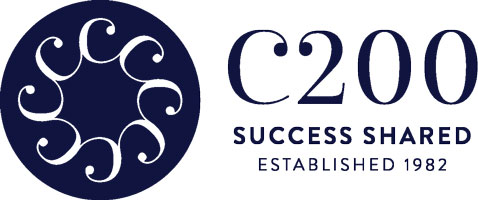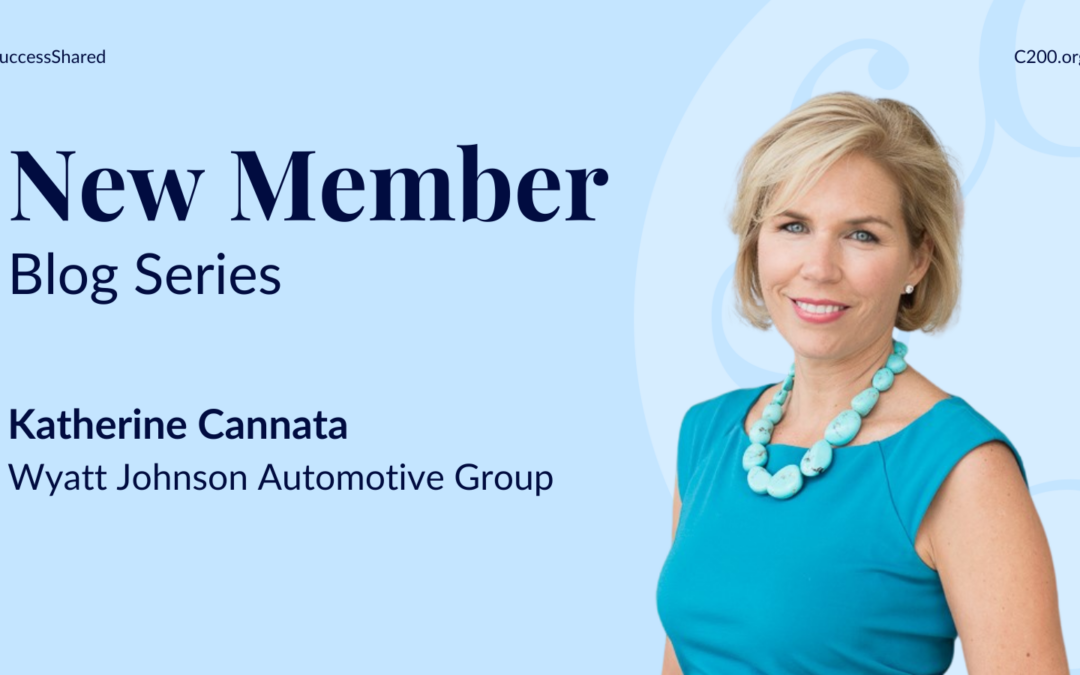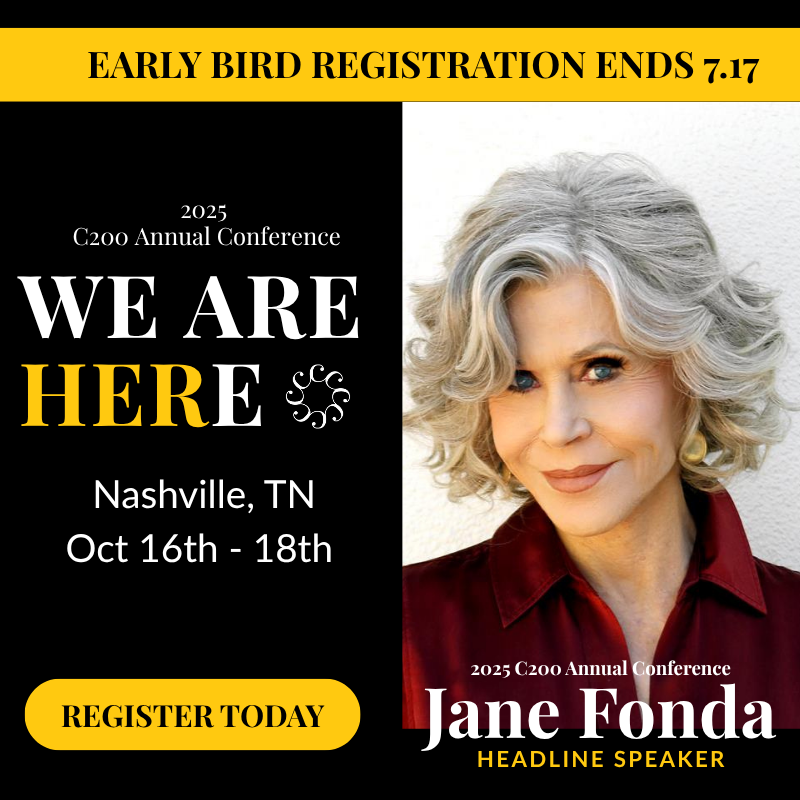Katherine Cannata serves as the Dealer Principal of Wyatt Johnson Automotive Group, which encompasses brands Buick, GMC, Hyundai, Subaru, Mazda, Toyota, Kia, and Volkswagen. The dealerships sell over 11,000 new and pre-owned vehicles annually. Katherine’s background in accounting has provided her with a unique insight that has been instrumental in the growth of Wyatt Johnson. She emphasizes the importance of “choosing your own meaning,” a mindset she believes is crucial for achieving success in any workplace. Outside of her professional life, Katherine enjoys spending quality time with her adult children, indulging in her love of reading, and supporting her husband at golf tournaments. A member of C200 since February 2024, Katherine is excited to engage with a community of dynamic women leaders.
Eva Glassman: What does it mean to be the Dealer Principal at Wyatt Johnson? What do you enjoy most about your work, and what are its biggest challenges?
Katherine Cannata: In the automotive industry, the term “Dealer Principal” equates to being the CEO of the dealership. At Wyatt Johnson, we not only sell and buy cars but also offer vehicle servicing and parts sales. We sell roughly 1,000 vehicles monthly.
I don’t view my role as a job per se. I lead an incredible team, and witnessing their development is my favorite aspect of my work. We focus on a culture of growth; out of five hundred employees, 65 of our 66 managers were promoted from within the company.
Navigating the pandemic was one of my recent challenges. We faced unique inventory shortages during COVID, a situation that was unfamiliar to our industry. Finding automotive technicians is also becoming more and more important in our industry.
EG: Your background is in accounting. How has that influenced your career? Did you envision this path when you started?
KC: I didn’t initially plan on pursuing accounting when I began college at UT Knoxville. It was through a conversation with a business school professor that I became intrigued by the field. My early assumptions about accounting being dull faded away as I learned that professionals in this field often get opportunities to travel and engage with diverse CEOs and companies.
Discovering accounting opportunities was pivotal for me. After graduation, I spent seven years at Price Waterhouse in Atlanta and two years at Arthur Andersen. Working in public accounting instilled in me the values of hard work and financial literacy.
I also didn’t plan on joining the auto industry. However, when my husband and I moved from Atlanta to Nashville in 1999, my father asked if I would work at Wyatt Johnson. I was uncertain about working with family, but I decided to try it on a temporary basis. Within weeks, I was hooked. My accounting expertise enabled me to analyze our financial “scorecard,” illustrating the impact of our operations. This contribution helped the business grow, and I continue to apply my accounting skills daily.
EG: How did you become involved with C200, and what attracted you to the organization?
KC: Initially, I hesitated to commit to more activities due to my already full schedule. However, after attending a cocktail party at Nancy Peterson Hearn’s house over the holidays, I was inspired by the incredible women I met, many of whom are at similar stages in their careers. That event sparked my interest in joining C200. I appreciated hearing their stories and journeys, and I felt a strong connection.
EG: Given that the automotive industry has few women leaders, can you share your experiences with mentorship—both from women and in general? What has your father’s role been as a mentor?
KC: I’ve had several mentors and coaches throughout my career, including some remarkable women. My mother has been one of my greatest influences; she exemplifies a servant leadership style, while my father brought a business-savvy, decisive approach. I’ve combined both styles in my own leadership.
Professionally, I grew significantly at Price Waterhouse, who were notably tough, but that experience built my confidence. I’ve also attended numerous Tony Robbins events, which I believe are fantastic for personal growth.
EG: I recently came across your concept of the “glass slipper” instead of the “glass ceiling.” Could you elaborate on that? How can women facing gender bias reframe their perspectives?
KC: The way I see it is: you find what you’re looking for. I’ll find what I believe in my heart. Women do have advantages in business and in the workplace. I used to not think this way, but I changed my perspective and language.
Before I adopted this kind of thinking, early in my career with a young child, I felt like I had two families—one at work and one at home—and felt guilty for leaving one or the other. I left home and felt guilty for leaving my kids; I left work and felt guilty for leaving my colleagues. I developed this circle of guilt that held a lot of weight over my shoulders.
This was when one of my coaches said, “Change your language. Instead of feeling guilty, feel grateful. Be grateful you have outstanding support at home and that your kids are happy. Be grateful for your work community that supports you and wants you to have a great livelihood.” As soon as I changed my language from “guilty” to “grateful,” all the weight came off my shoulders. I was able to bring more energy to my work and home life. It taught me a big lesson—that you can choose your own meaning.
The “glass slipper” terminology emerged when I was preparing a presentation for a group of women college students. I wanted to instill in them the belief that business opportunities are everywhere, especially as women, and to be open to those opportunities. The media loves to use the term glass ceiling. However, that is damaging to our belief system. Women do have an advantage in the workplace as I’ve observed in the automotive industry. Companies thrive with a diverse range of viewpoints. I said to these women that we should start using the language “glass slipper” instead of “glass ceiling” for that reason. The glass slipper symbolizes the tremendous opportunity for women in all fields.
EG: That’s a powerful lesson. It’s essential to recognize the standards we choose to measure ourselves against, as finding personal meaning is critical to success.
KC: Absolutely! Today’s world, influenced by constant social media and news cycles, often detracts from our focus. I consciously engage with positive content on platforms like Instagram to maintain an uplifting perspective. Protecting our mental space is vital—choosing positivity is crucial for success.
EG: How do you unwind and enjoy your time outside of work?
KC: I enjoy attending hot yoga classes in Nashville, and since my husband is an accomplished golfer, I love watching him compete in tournaments. Travel is a passion; we enjoyed a memorable trip to the Amalfi Coast last year with our children. I also cherish reading—my book club provides a wonderful outlet for discussing fiction. Audiobooks are a favorite too, especially during commutes.
EG: What advice would you offer aspiring women business leaders, especially those hoping to one day join C200?
KC: Leadership is all about putting in the effort, staying committed, and learning from both your wins and your setbacks. It’s important to define your core values—they’ll help steer your decision-making.
If you’re aspiring to be a leader, my biggest tip is to be optimistic. Having a positive and energetic attitude not only sets you apart but also draws in like-minded people.
For those looking to join C200 in the future, remember that hard work is essential. A lot of people want success, but it’s the dedication and discipline that will really drive you toward your goals.
EG: Lastly, why C200?
KC: I’m really looking forward to building relationships with fellow members. I appreciate the opportunity to learn from those who have gone through similar journeys and to exchange insights that can help us all grow together. Connecting with ambitious women is going to be such a rewarding experience, and I can’t wait!


